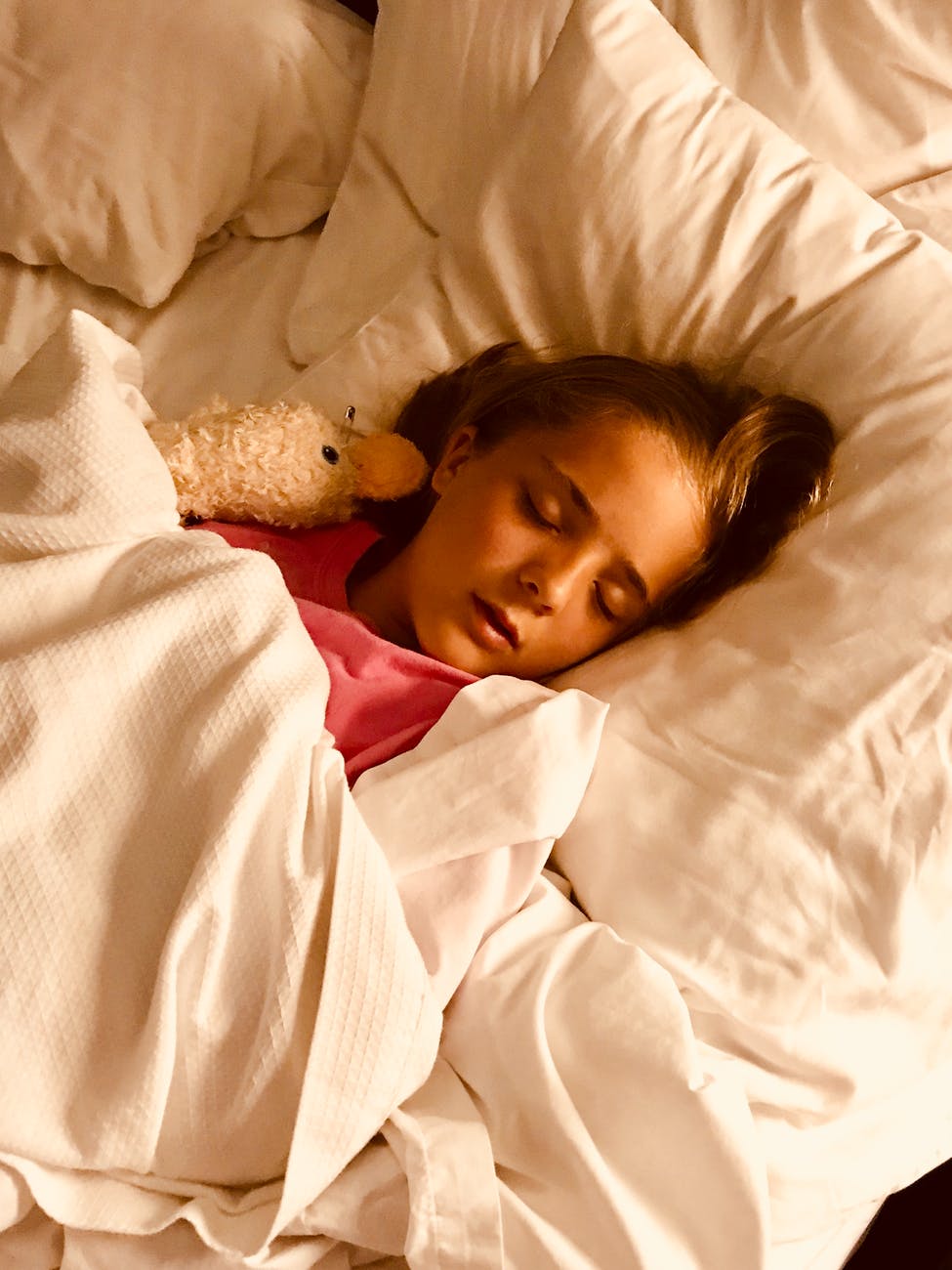When you have kids, sleep is at a premium. So when you have a child that struggles to fall or stay asleep, the effects on the whole family can be disastrous.
I hated bedtime with my three year old. Loathed it. We followed all of the suggestions, moved bedtime around, had the same routine every night, no screens, screens, music, no music, nap, no nap – no matter what, it would take him upwards of an hour and half (sometimes longer) to fall asleep.
That meant no “me” time, and no alone time for my husband and me, because it was usually close to 10pm by the time we escaped his room (and usually later than that, because we would fall asleep, too).

Image Credit: Pexels
The real reason that I decided to ask my doctor about melatonin, though, was how frustrating it was for him. My baby was tired, exhausted some nights, and still he would toss and turn for hours before finally being able to close his eyes.
The doctor gave us the green light, and it’s been like living with a different kid. It doesn’t make him fall asleep, but it gets his body in a place where he feels ready to sleep.
But as a mother, yes, I have to wonder whether I made the decision for him, or for me.
More and more pediatricians, and subsequently, more and more parents, are turning to melatonin to help cure their kiddos sleep woes. In fact, in a study, a full half of parents have or are using it currently.
Is it safe, though?
That’s the million dollar question, and the hard truth is, we really don’t know. There have been no negative side effects found in studies on short term use, but there aren’t a lot of them, especially not focused on children. The concern seems to be more around sustained, long-term use, but only because there’s literally no data.
Melatonin isn’t considered a drug, since it’s a hormone present in everyone’s body. It’s officially labeled a dietary supplement, which means the FDA doesn’t have to approve or verify its ingredients, and they haven’t weighed in on its efficacy or potential harms, either.
The American Academy of Pediatrics and the National Institutes of Health do not recommend children taken it long term for that reason…but neither specifies what constitutes “long term.”
In a person without sleep issues, melatonin flows from your pineal gland and tells your body when to sleep and when to wake. In supplementing it, we’re telling our body it’s time to go to sleep. Everyone’s sleep-wake cycle is a bit different, everyone requires different amounts of sleep, and people have varying internal clocks – so it could be that your difficult sleeper is a natural night owl, or just doesn’t require as much sleep as the kid in the next room.

Image Credit: Pexels
Which, I think will be fine to manage once my child is old enough to be awake in the house on his own, and to be doing his own thing when he is. For now, when his schedule is woven so tightly with my own sanity, the melatonin stays.
If you’re considering giving it to your kiddo, you should know that almost every doctor out there will tell you its safe in the short term, and honestly, it might be in the long term, too. You’ll have to make that decision with your doctor, though, but listen – good sleep is good for the soul.
Yours and theirs, and so that’s something to consider, too.
The post Is Your Kid Not Sleeping? Here Are Some Answers to Your Questions About Melatonin for Children appeared first on UberFacts.

 Сон вашего ребенка важен не только для него, но и для всей семьи!
Сон вашего ребенка важен не только для него, но и для всей семьи! Принимая 1 мг клинически изученного мелатонина в каждой таблетке от Zarbee's, вы можете помочь малышу заснуть, не формируя привыкания.
Принимая 1 мг клинически изученного мелатонина в каждой таблетке от Zarbee's, вы можете помочь малышу заснуть, не формируя привыкания.  Мелатонин
Мелатонин Способствует спокойному сну
Способствует спокойному сну


 Без лекарств и спирта
Без лекарств и спирта 
 Доставка по Украине в течении 10-14 дней
Доставка по Украине в течении 10-14 дней  Если товара нет в наличии – оформляем предзаказ
Если товара нет в наличии – оформляем предзаказ  Для заказа: Direct, Viber, Telegram – +380972119681 #iHerb#айхерб#заказатьайхерб#доставкаайхерб#кривойрог#украина#здоровыйсон#мелатониндлядетей#витаминыдлядетей#витаминыизамерики#детскиймелатонин#сонребенка#здоровыймалыш#длязасыпания#длямалышей#длясна#гиперактивныйребенок#melatoninforkids#Iherbвитамины#Iherbзаказы#акцииiherb#Zarbee's#Children'sSleepFormulas
Для заказа: Direct, Viber, Telegram – +380972119681 #iHerb#айхерб#заказатьайхерб#доставкаайхерб#кривойрог#украина#здоровыйсон#мелатониндлядетей#витаминыдлядетей#витаминыизамерики#детскиймелатонин#сонребенка#здоровыймалыш#длязасыпания#длямалышей#длясна#гиперактивныйребенок#melatoninforkids#Iherbвитамины#Iherbзаказы#акцииiherb#Zarbee's#Children'sSleepFormulas